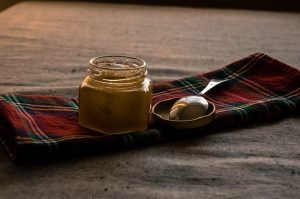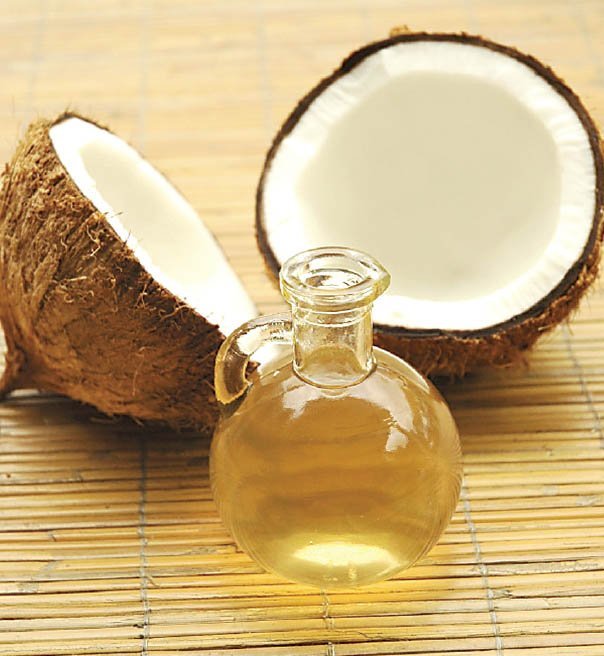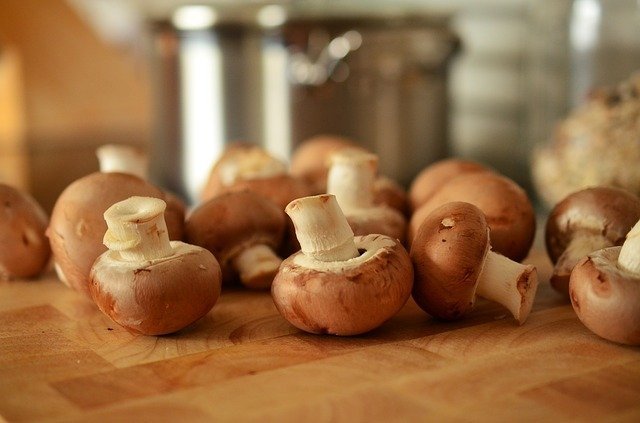The bees that pollinate the manuka bush, native to New Zealand and Australia, are the source of manuka (or jelly bush) honey. There are several kinds of honey and many are known to boost the immune system, as well as have many other nutritional values. Manuka honey has all these benefits which can be up to four times more than other forms of honey, as well as additional ones including the ability to kill even the ‘superbug’ bacteria.
Active Components of Manuka Honey
Honey’s antibacterial properties are due to the hydrogen peroxide which it contains. Manuka honey has a higher level of enzymes than other types, which increases its hydrogen peroxide production. This component is also more stable in the manuka honey, and is unaffected by light, heat or enzymes in our bodies. Methylglyoxal (MG) is another active component found in honey. It is made by the conversion of dihydroxyacetone which is found in high quantities in the manuka flowers. The higher the amount of MG in manuka honey the stronger its antibacterial properties.
A scale has been developed to measure the antibacterial strength of manuka honey, called the UMF (Unique Manuka Factor). This global measurement starts at 5+ and must be over 10+ to have any
antibiotic benefits, and the highest grades of 16+ are used in the medical field. To determine its UMF level, the antibacterial qualities in the honey are compared with the disinfectant, phenol.
Manuka Honey vs Bacteria
Bacteria are one of the most resilient organisms on the planet, and many species are developing resistant to antibiotics. As the bacteria become immune many pharmaceutical companies have stopped producing antibiotics, and the medical field is experimenting with using more natural products to treat them. The European Journal of Clinical Microbiology and Infectious Diseases has published a study, which shows that using manuka honey to fight infections caused by bacteria is highly effective.
‘Superbugs’ (including flesh eating bacteria) are bacteria that have become resistant to the antibiotics that were developed to treat them. Included in this category are MRSA, strains of Staph that are found in wounds and are now completely immune to medications. Alternative methods have been used to save the lives of those which become infected with the bacteria, including surgeries, amputation and inserting artificial joints.
During the tests conducted manuka honey proved to be effective against all bacteria it was used on, because it causes a multi-system failure in them. Furthermore, the bacteria were unable to develop resistance against them. Many hospitals and nursing homes have begun applying it topically to prevent or kill bacteria, as well as taking advantage of the honey’s anti-inflammatory properties. Researchers are also developing a range of antiseptic and antibiotic creams that will have manuka honey as the main ingredient. The benefits of manuka honey against bacteria can also be gained by consuming it.
Additional Health Benefits of Manuka Honey
1. Promotes Healthy Teeth and Gums
Studies have shown where manuka honey may help to prevent gingivitis, by reducing the build-up of plaque. Chewing, or sucking, products made with manuka has proven to reduce bleeding gums by 35%. This is because the honey contains calcium and zinc, which are necessary for healthy teeth and gums.
2. Soothes Throat Inflammation
Manuka honey stimulates a healthy immune system, and provides immediate sore throat relief by soothing the inflammation and then killing the bacteria which caused it. It has also been approved by the National Cancer Institute, to help heal inflammation in the throat caused by chemotherapy.
3. Treats Stomach and Intestinal Conditions
Tests have shown where manuka honey can reduce intestinal inflammation and pain. It also helped to protect against and repair free radical damage in the intestines. This combination greatly reduces symptoms of IBS (Irritable Bowel Syndrome).
When the bacteria that live in our stomach and intestines overmultiply they cause acid reflux conditions, including low stomach acid and small intestinal bacteria overgrowth (SIBO). These are both caused by the clostridium difficult bacteria, which manuka honey is very effective in killing. The result is a reduction in acid reflux and a balancing of the bacteria in the stomach and intestines.
4. Boosts Healthy Sleep Cycles
Manuka honey slows down the release of glycogen needed for essential body functions while people are asleep, promoting deep, restful sleep cycles. Mixing the honey with milk and drinking before bed also helps increase melatonin release which is necessary for a deep slumber. The body heals itself when it is resting and an adequate amount of restful sleep helps lower the risk of heart disease and diabetes.
5. Cures Acne and Other Skin Conditions
Many forms of acne are caused by bacteria, and manuka honey can be used to wash the face eliminating these as well as softening the skin. It is also used in beauty products and creams, to promote healthy, glowing skin.
Sources:
http://besthealthyguide.com/type-raw-honey-kills-every-kind-bacteria/
http://www.news.com.au/news/honey-i-killed-the-superbug/news-story/d662a564c74acdf38cda8b1a39707c42
https://draxe.com/manuka-honey-benefits-uses/
http://www.webmd.com/a-to-z-guides/manuka-honey-medicinal-uses#2







